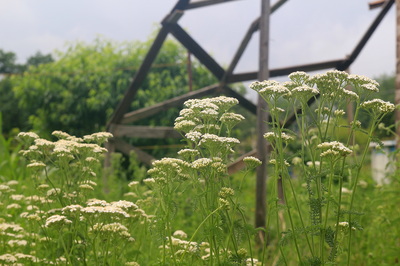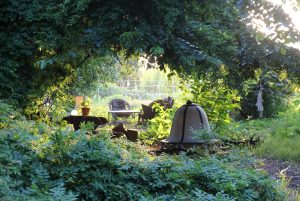
The small community of the Garden of Eden, hidden from the highway by a gate and some trees, has a large presence due to their involvement in the areas surrounding them and outreach to areas elsewhere.
While the websites are friendly, I couldn’t help but notice there is a very specific language the members use concerning the community and those outside of the community.
The language towards the community is biased. That’s to be expected, but the bias is directly reflected in the language towards the outside community. When outsiders say something about the community, the community says it is because they don’t understand. However, it is possible that there are problems that the community is purposely neglecting.
On this page, the community says members should join if they are, “ready to give up whining, wallowing, complaining, blaming, making excuses and other unproductive responses to stress.” I think there are other ways to phrase some of these prerequisites.
One problem that I wasn’t able to solve (and consequently, stressed about) was that the community was frequently unreachable. The majority of my Facebook messages, phone calls, and emails have gone unanswered.
In early September, when the group agreed to complete the project with me, I was elated. However, consequent messages and emails seem to have disappeared into oblivion.
The GOE prides themselves on answering questions quickly and reaching out to more people, yet I felt that at times, they were trying to ignore me.
On Facebook, I saw at least a few times that they had read my messages and had not responded. For a community that agreed to work on this project with me, why would answers be read and then unanswered, even ignored?
At times, the community has taken weeks to respond. And while sometimes it was stressful, I knew the community was helping me when they didn’t have to – so I couldn’t say much.

While I think the community is trying their best to reach out to people, hardly responding and offering brief explanations to questions is not an accurate way to reach out to people.
Though the community wants to reach out to more people, they have to be ready to answer questions. Similarly, there are problems with the process visitors have to grow through to enter the grounds. This will aid in pushing people away, rather than bringing more in.
This problem is similar to Rosabeth Kanter’s research on commitment issues in group life. Kanter says, “[Long-lived] communities tended to require ideological conversion for admission and did not automatically accept all applicants” (127). And this is true for GOE, as members have to apply to join. Not everyone is readily accepted.
Similarly, Kanter states, “[Communities] tended to ensure the concentration of loyalty within the community by geographical separation” (126). Though the GOE is not completely isolated, it is in the sense that short-term, daily visitors have to fill out an agreement.
However, the visitor agreement is indicative of the sacrifice that Kanter mentioned and that the GOE expects. This agreement shows the desires and needs of the community, as those that enter have to match their ideas. Because of this, the agreement is the community’s way to study visitors and/or future members.
Citation: Kanter, Rosabeth Moss. Commitment and Community: Communes and Utopias in Sociological Perspective. Harvard Univ. Pr., 1977.